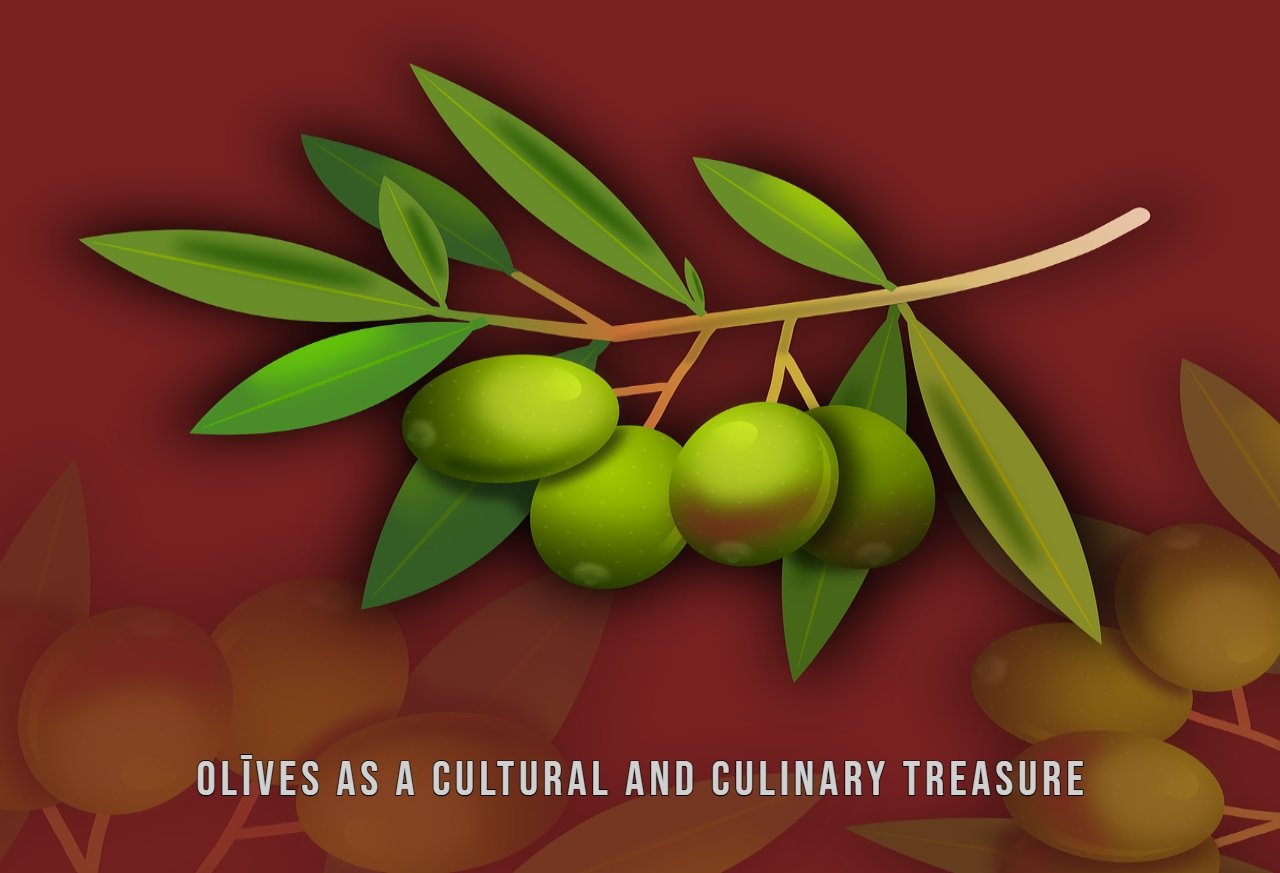Health
Olīves as a Cultural and Culinary Treasure

In the world of gastronomy and agriculture, few items can claim the same level of cultural, historical, and nutritional significance as olīves. These small, oval fruits have graced tables, oil presses, and skincare routines for centuries. Whether green, black, or somewhere in between, olīves carry with them the richness of the Mediterranean and beyond. Their presence has shaped diets, economies, and rituals, making them more than just food—they are a tradition. With a history that dates back thousands of years, olīves are a staple in both ancient mythology and modern diets.
The Historical Journey of Olīves Across Civilizations
The roots of olīves stretch deep into the ancient world. Evidence of their cultivation has been found in archaeological sites dating as far back as 6000 BCE. Civilizations such as the Greeks, Romans, and Phoenicians revered olīves not only for their culinary uses but for their symbolic and medicinal roles. In ancient Greece, the olive tree was sacred, considered a gift from the goddess Athena. In Rome, olīves were a staple of the citizen’s diet and an important trade commodity. These fruits were often pressed into oil, preserved in brine, or used whole in numerous dishes.
You Might Also Like: Masgonzola vs. Gorgonzola
Olīves in Religion and Symbolism
Beyond the table, olīves hold significant religious symbolism. In Christianity, the olive branch is a symbol of peace and divine promise and In Judaism, olīves are integral to many traditions, often used to produce oil for lamps and rituals. In Islam, olīves are mentioned in the Qur’an as a blessed fruit, valued for its health benefits and spiritual purity. This enduring reverence showcases how olīves transcend their physical form to become metaphors for hope, resilience, and abundance.
Cultivation and Harvesting Methods of Olīves
The process of growing olīves is as meticulous as it is ancient. Olive trees thrive in warm, subtropical climates with well-drained soil. Regions such as Spain, Italy, Greece, and Turkey are major producers due to their ideal growing conditions. These trees are hardy and can live for hundreds of years, bearing fruit annually. The harvest season typically falls between September and January, depending on the variety and desired ripeness. Some olīves are handpicked to preserve quality, while others are collected using mechanical methods.
Types and Varieties of Olīves Around the World
Olīves come in a stunning array of varieties, each with its unique flavor profile, texture, and culinary application. Some popular types include Kalamata, known for their almond shape and rich taste, and Manzanilla, appreciated for their firm texture and briny flavor. Castelvetrano olīves offer a buttery bite, while Nyon olīves are small and deeply wrinkled, often found in French cuisine. These varieties reflect not just taste differences but also regional identities and agricultural techniques passed down through generations.
Nutritional Value and Health Benefits of Olīves
The health benefits of olīves are well-documented and extensive. They are rich in monounsaturated fats, particularly oleic acid, which is known to support heart health. Olīves are also packed with antioxidants such as vitamin E and polyphenols, which combat oxidative stress and inflammation. Their high fiber content supports digestion, while the anti-inflammatory compounds may help reduce the risk of chronic diseases. Including olīves in a balanced diet can improve overall wellness and longevity, particularly when consumed in their most natural forms.
Olīves in the Mediterranean Diet
One cannot discuss olīves without referencing the Mediterranean diet, which has been consistently ranked among the healthiest in the world. This diet emphasizes fresh fruits, vegetables, whole grains, legumes, and, notably, olīves and olive oil. The regular consumption of olīves contributes to lower rates of heart disease, better weight management, and improved cognitive function. Their versatility allows them to be eaten as snacks, incorporated into salads, or used as spreads and tapenades.
Culinary Uses of Olīves in Global Cuisines
In the culinary world, olīves are a chef’s best friend. They add complexity and depth to countless dishes across continents. In Mediterranean and Middle Eastern cuisine, olīves feature prominently in mezze platters, tagines, and pasta. In Spain, they are key ingredients in tapas and paella. Italian cuisine employs olīves in puttanesca sauce, focaccia bread, and antipasti. Even in modern fusion cuisine, olīves find innovative uses, such as being infused in cocktails or blended into plant-based dishes.
Olīves in Beauty and Skincare
The benefits of olīves are not limited to the kitchen. Olive oil, derived from pressing olīves, has long been used in skincare and beauty. Its moisturizing properties make it a popular ingredient in lotions, soaps, and hair treatments. Rich in vitamin E and antioxidants, olive oil can help protect the skin from premature aging, maintain elasticity, and soothe irritation. In many cultures, it has been used as a natural remedy for centuries, providing a chemical-free alternative to synthetic beauty products.
Sustainable Farming and Environmental Impact of Olīves
As the world turns toward more sustainable agricultural practices, olīves offer a model of eco-friendly farming. Olive trees require relatively low water input and can be cultivated in arid climates. They help prevent soil erosion and can even grow in marginal soils unsuitable for other crops. Many olive farms now adopt organic practices, avoiding harmful pesticides and focusing on biodiversity. This not only protects the environment but enhances the quality and taste of the olīves produced.
Economic Importance of Olīves to Producing Countries
Olīves are a cornerstone of agricultural economies in many Mediterranean nations. They support millions of farmers and workers through both large-scale production and small family-run farms. The global demand for quality olīves and olive oil continues to rise, making it a valuable export commodity. Beyond the raw product, tourism associated with olive farms and oil tastings adds another layer of economic benefit. Producing regions often take great pride in their olīves, treating them as symbols of local heritage and craft.
Challenges Facing the Olīve Industry Today
Despite their many benefits, the olīve industry is not without challenges. Climate change poses a significant threat, affecting rainfall patterns and increasing the frequency of pests and diseases. In some areas, overharvesting and unsustainable practices have led to soil degradation. Market fluctuations and international trade policies can also impact prices and accessibility. However, with innovation and regulation, the industry continues to adapt, developing drought-resistant cultivars and promoting fair trade practices.
Modern Innovations in Olīve Production
Technology has not left the olīve industry untouched. Today, producers use advanced techniques such as precision agriculture, drone monitoring, and AI-based soil analysis to optimize yield and quality. Cold pressing methods have improved, ensuring that olive oil retains its nutritional integrity. Packaging has also evolved, with a growing emphasis on sustainability and shelf life. These innovations allow traditional producers to maintain high standards while reaching global markets efficiently.
Cultural Events and Festivals Celebrating Olīves
Olīves are celebrated in many parts of the world through festivals and events that honor their cultural and economic importance. In Spain, the Fiesta del Olivo in Mora attracts thousands of visitors each year with music, food, and olive-tasting experiences. Italy’s Festa dell’Olio showcases the season’s new oils alongside local crafts and performances. These events strengthen community ties and educate the public about the value of olīves, from tree to table.
Olīves in Art and Literature
Throughout history, olīves have inspired artists, poets, and philosophers. Olive branches appear in countless paintings and sculptures as emblems of peace, endurance, and beauty. In literature, olīves are often used metaphorically to represent simplicity, resilience, and connection to the earth. Writers from Homer to modern authors have referenced olīves to convey deeper meanings about life, nature, and humanity’s bond with the land.
Storing and Preserving Olīves for Longevity
Proper storage and preservation techniques are essential to maintain the quality and flavor of olīves. Traditionally, olīves are cured using methods like brining, dry-salting, or lye treatment to remove bitterness. Once cured, they can be stored in jars with oil or vinegar, often enhanced with herbs and spices. It is crucial to keep olīves in cool, dark places and to ensure airtight sealing to prevent spoilage. These techniques have allowed people to enjoy olīves year-round, preserving seasonal harvests for extended enjoyment.
Olīves in Contemporary Health Trends
In recent years, olīves have seen a resurgence among health-conscious consumers. Their inclusion in plant-based, keto, and paleo diets reflects a broader recognition of their versatility and health advantages. Olīves are often recommended as heart-healthy snacks and are increasingly available in organic, artisanal, and specialty formats. The rise of olive-based supplements and extracts also highlights their role in modern wellness regimens.
Educational Resources and Olīve Tourism
Many regions now offer immersive experiences centered on olīves. Visitors can tour ancient olive groves, participate in harvests, and learn about pressing techniques. Museums dedicated to olīves provide historical context and interactive displays. Educational programs in schools and agricultural institutes ensure that knowledge of olīves is passed down to future generations. This hands-on approach deepens appreciation for the fruit and its significance.
Conclusion: The Enduring Legacy of Olīves
Olīves have stood the test of time, proving themselves indispensable in every facet of life—from food and health to culture and economy. Their unique qualities and profound symbolism ensure they remain relevant even as the world evolves. Whether enjoyed in a simple dish or explored through historical study, olīves continue to nourish body, soul, and society. As consumers grow more mindful, olīves are not just a product of the past—they are a vital part of our sustainable and flavorful future.

 Music8 months ago
Music8 months ago[Album] 安室奈美恵 – Finally (2017.11.08/MP3+Flac/RAR)

 Music8 months ago
Music8 months ago[Album] 小田和正 – 自己ベスト-2 (2007.11.28/MP3/RAR)
- Music8 months ago
[Single] tuki. – 晩餐歌 (2023.09.29/Flac/RAR)
- Music8 months ago
[Album] back number – ユーモア (2023.01.17/MP3/RAR)

 Music8 months ago
Music8 months ago[Album] 米津玄師 – Lost Corner (2024.08.21/MP3 + Flac/RAR)
- Music8 months ago
[Single] ヨルシカ – 晴る (2024.01.05/MP3 + Hi-Res FLAC/RAR)

 Music8 months ago
Music8 months ago[Album] ぼっち・ざ・ろっく!: 結束バンド – 結束バンド (2022.12.25/MP3/RAR)

 Music8 months ago
Music8 months ago[Album] Taylor Swift – The Best (MP3 + FLAC/RAR)











